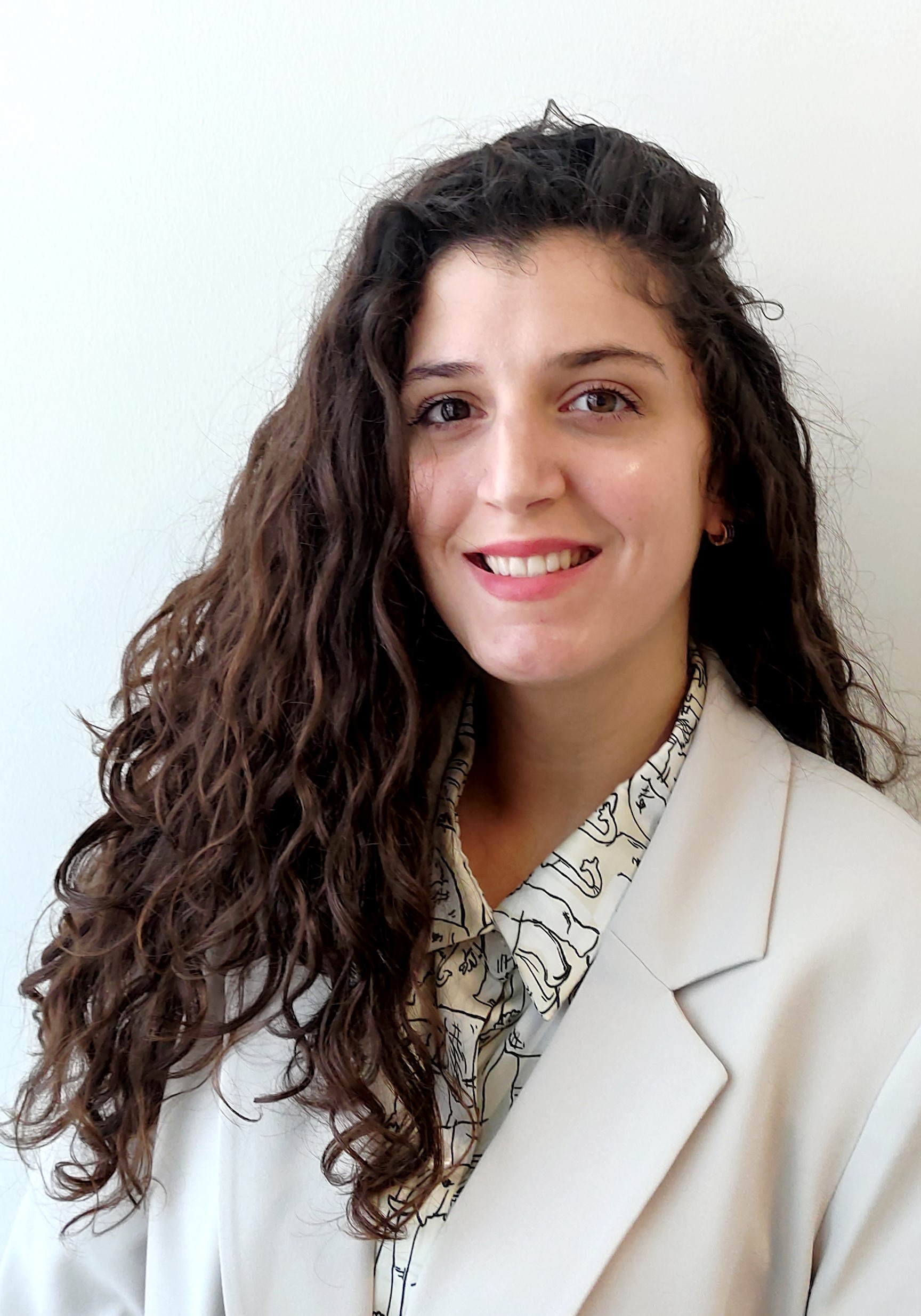Research Assistant

Sara Arana Pena, Dr.
Research Assistant
Phone: +49 (0) 9421 187-337
Fax: +49 (0) 9421 187-310
Mail:sara.arana@tum.de
TUM Campus Straubing
Schulgasse 16
D-94315 Straubing
Schulgasse 16, Room: 1.A02
Vita
Curriculum
- February 2018 – November 2021 PhD in Molecular Biosciences, Universidad Autónoma de Madrid, Spain.
- Institute of Catalysis and Petrochemistry (ICP), Spanish National Research Council (CSIC). Madrid, Spain. Research group leader: Prof. Dr. Roberto Fernández Lafuente.
- Doctoral thesis “Immobilization and co-immobilization of lipases using hydrophobic supports. New strategies to reuse the most stable enzymes in combi-biocatalysts”.
- September 2015 – February 2017 Master’s degree in Environmental and Industrial Biotechnology, Universidad Complutense de Madrid, Spain.
- Institute of Catalysis and Petrochemistry (ICP), Spanish National Research Council (CSIC). Madrid, Spain. Research group leader: Prof. Dr. José Manuel Guisán Seijas
- Master’s Thesis “Immobilization and stabilization of the glycosyltransferase UGT71A15 of high industrial value”.
- September 2011 – June 2015 Bachelor’s degree in Biology (Biotechnology mention), Universidad Complutense de Madrid, Spain.
- Margarita Salas Center for Biological Research (CIB Margarita Salas), Spanish National Research Council (CSIC). Madrid, Spain. Research group leader: Dr. Félix Ortego Alonso.
- Bachelor’s Thesis “Effects of drought over the viral infection of TMV, TMV-1056 and PaMMV-H on Solanum lycopersicum var. Rutgers”.
Research
My research is focused on the field of heterogeneous biocatalysis. The use of different enzyme immobilization and co-immobilization strategies, the development and modification of supports and the characterization of biocatalysts were the main points to highlight out of it. Since December 2021, I been working at the Chair of Chemistry of Biogenic Resources (TUMCS) leading a project for the co-immobilization of enzymes involved in synthetic cascades reactions developed at the chair. The preparation of optimal co-immobilized cascades will allow to use, recover and reuse the biocatalysts and benefit from all the advantages of immobilization and co-immobilization. This will reduce the cost of processes and improve reaction yields, providing a promising green alternative to the traditional chemical industry
Publications
- S. Arana-Peña, N.S. Rios, D. Carballares, L.R.B. Gonçalves, R. Fernández-Lafuente, Immobilization of lipases via interfacial activation on hydrophobic supports: Production of biocatalysts libraries by altering the immobilization conditions, Catal. Today. 362 (2021) 130-140. https://doi.org/10.1016/j.cattod.2020.03.059.
- S. A. Braham, E.-H. Siar, S. Arana-Peña, H. Bavandi, D. Carballares, R. Morellon-Sterling, D. de Andrades, J. F. Kornecki, R. Fernández-Lafuente, Effect of concentrated salts solutions on the stability of immobilized enzymes: Influence of inactivation conditions and immobilization protocol, Molecules. 26 (2021) 968. https://doi.org/10.3390/molecules26040968.
- R.Morellon-Sterling, D. Carballares, S. Arana-Peña, E.-H. Siar, S. A. Braham R. Fernández-Lafuente, Advantages of supports activated with divinyl sulfone in enzyme co-immobilization: Possibility of multipoint covalent immobilization of the most stable enzyme and immobilization via ion exchange of the least stable enzyme, ACS Sustain. Chem. Eng. 9 (2021) 7508-7518. https://doi.org/10.1021/acssuschemeng.1c01065.
- S. Arana-Peña, D. Carballares, R. Morellon-Sterlling, Á. Berenguer-Murcia, A.R. Alcántara, R.C. Rodrigues, R. Fernández-Lafuente, Enzyme co-immobilization: Always the biocatalyst designers’ choice…or not?, Biotechnol. Adv. 51 (2021) 107584. https://doi.org/10.1016/j.biotechadv.2020.107584.
- S. Arana-Peña, D. Carballares, R. Morellon-Sterlling, J. Rocha-Martín, R. Fernández-Lafuente, The combination of covalent and ionic exchange immobilizations enables the coimmobilization on vinyl sulfone activated supports and the reuse of the most stable immobilized enzyme, Int. J. Biol. Macromol. 199 (2022) 51-60. https://doi.org/10.1016/j.ijbiomac.2021.12.148.
